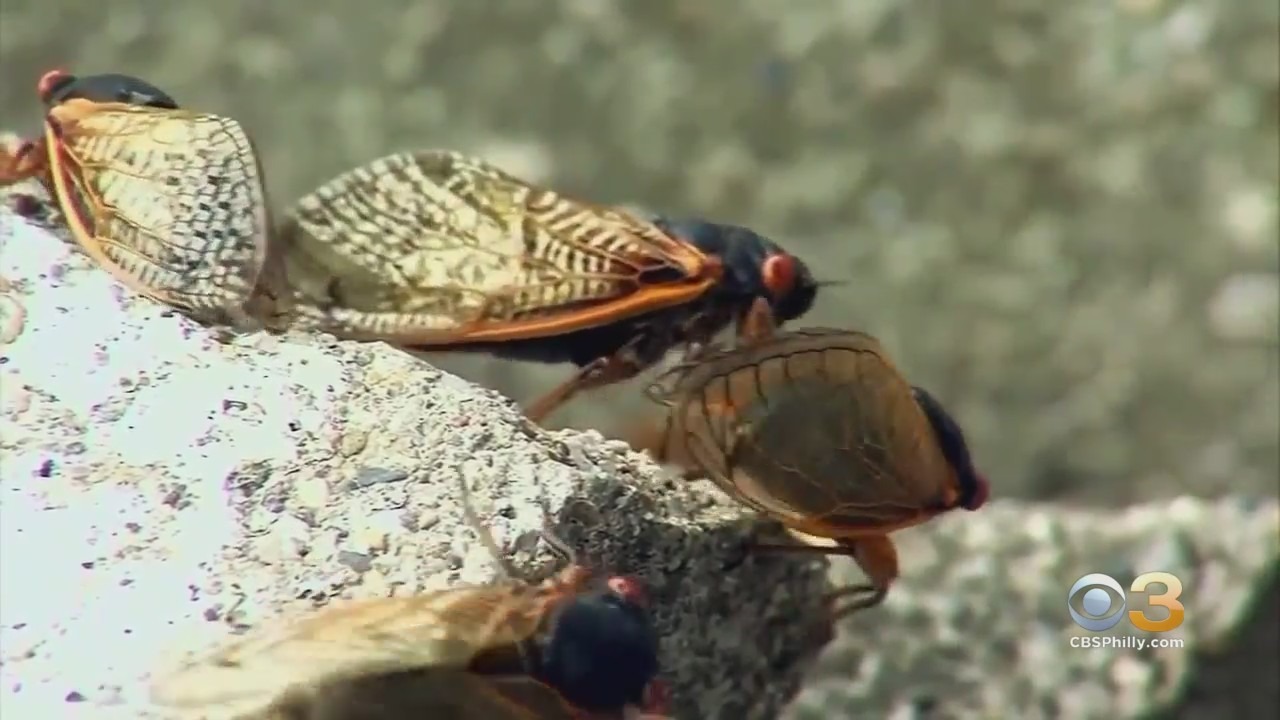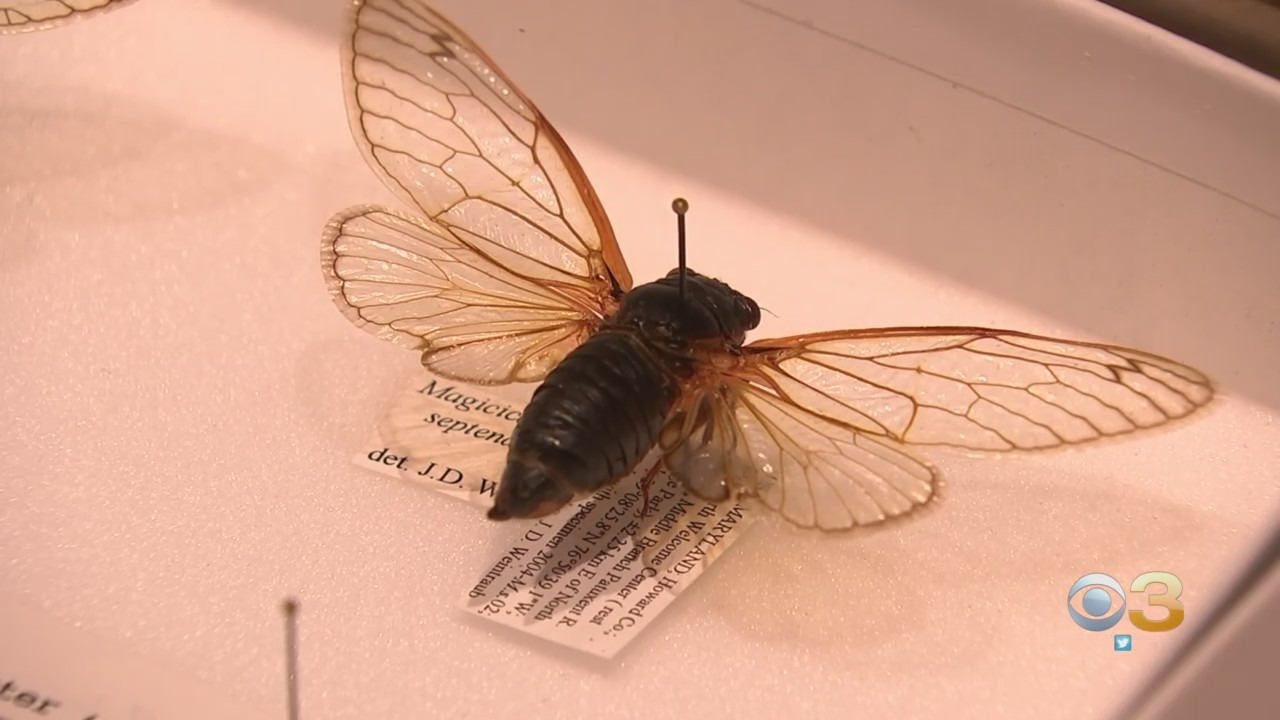Brood 10 Periodical Cicadas To Emerge From Ground This Month
PHILADELPHIA (CBS) -- An event 17 years in the making is about to take over the Delaware Valley. It's the biggest event of its kind in the entire world and this region is the only place where you can see it happen.
Their look with those bulging red eyes is straight out of science fiction and their name is Brood 10 Cicada.
Come mid-May these cicadas will put on a show unlike any other.
"This is such a fantastic phenomenon because this is the only place in the world where this happens," Academy of Natural Sciences of Drexel University Assistant Curatorial Greg Cowper said.
Once every 17 years -- and only in this part of the country -- Brood 10 Periodical Cicadas emerge en masse. And Brood 10 is one of the largest Broods. We're talking billions of them, all at once. From the Midwest, east to New York and south through Washington D.C.
But this won't be a horror show so there is no need to worry.
"It's peace, love and music for about two weeks," Cowper said.
Peridocial Cicadas do no harm. They don't bite or sting and generally don't hurt plants either. They just spend two weeks to a month looking for a mate and they attract their partner through a sweet song.
"Often they sing in chorus, they're all doing it together," Cowper said. "Upwards of almost 100 decibels, which is jet plane loud."
Don't worry, they won't keep you up at night because they stop singing at dusk and Philadelphia will be largely spared.
Entomologist Greg Cowper showed CBS3 the collection of periodical cicadas at the Academy of Natural Sciences of Drexel University.
Since the early 1900s, scientists have only found a few cicadas in Philadelphia and the experts don't know why.
"So, I think you're going to have to go west or east or south to see them," Cowper said. "There's already reports of them coming to the surface in Quakertown."
Right now, most periodical cicadas are about a foot below the surface still feeding on tree roots. But once the soil warms to 64 degrees, they will tunnel their way to the surface and become part of the biggest emergence of insects in the world -- creating quite the buffet.
Something Greg recalls from their last emergence in 2004.
"There were ducks coming out of a pong, crossing the street and eating all the cicadas in the grass and smashed in the street," Cowper said. "Seagulls were catching them in the air."
By June, the insects will be gone. Leaving behind only their crunchy shells.
Remember, while they are here they'll be loud but with good reason.
"Driving a Camero with your music real loud hoping some women will see you and you can go to the eatery and get a coffee and a milkshake," Cowper said.
These days it's also called "Netflix and Chill."
There are now apps you can use to help scientists track the periodical cicada. Perhaps, even help entomologists find more of them in Philadelphia.
The Brood 10 Cicadas are expected to emerge on May 15.
But some experts say our warming climate is causing the insects to emerge earlier than they have in the past. The Academy of Natural Science is still researching that very issue.





